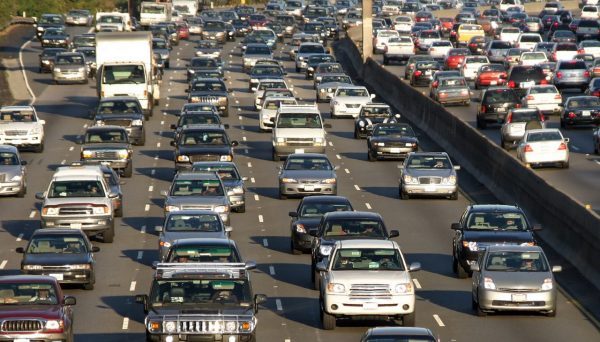California experts thought carmakers were unlikely to reverse the Trump administration’s move to roll back Obama-era vehicle standards, and they were proved right Friday when Washington rejected the companies’ plea for an emissions deal with California.
White House spokesman Judd Deere said in a statement that the administration would continue with its plan to ease federal rules on fuel economy and tailpipe emissions: “We are moving forward to finalize a rule with the goal of promoting safer, cleaner, and more affordable vehicles.”
Gov. Gavin Newsom responded that the state would stand with carmakers, other states and environmentalists and would continue to push for a single set of vehicle standards across the country—one that “doesn’t backtrack on the progress states like California have made in protecting the climate and our kids’ health,” he said in an emailed statement.
The White House’s rejection of renewed talks came in response to letters that 17 automakers sent to President Donald Trump and Newsom on Thursday. In the letter to Trump, the companies, including Ford and General Motors, applauded the federal decision to scrap Obama-era rules that would increase gas-mileage requirements and reduce vehicle emissions through model year 2025. The Trump administration proposes to cap fuel-economy standards at an average 37 miles per gallon starting with model year 2021.
The companies pushed the president to reach an agreement with California, which has the power to set its own standards, on more incremental, year-over-year increases to fuel-efficiency goals. They also asked Newsom to resume negotiations with Washington, which reached a stalemate months ago.
“Avoiding protracted litigation and uncertainty is good for all parties, including consumers, and for the environment,” the letter to Newsom said.
Even before the White House doubled down on the rollbacks, environmental policy experts thought the entreaties weren’t likely to succeed.
The Trump administration has “largely ignored California and the auto industry so far,” said Daniel Sperling, director of the Institute of Transportation Studies at the University of California Davis and a member of the California Air Resources Board.
Still, he said, the letters were important symbolically: “It’s saying even the auto industry believes that there should be vehicle-emissions standards in place.”
The auto firms helped make the bed they’re currently lying in when they first asked Trump to revisit the standards, which they supported when the Obama administration instituted them. A federal review in January 2017 determined that car makers should stay the course, saying “the auto industry is thriving and meeting the standards more quickly than required.”
The auto industry didn’t agree, and once President Trump took office, carmakers asked that the rules be reconsidered. Then came the proposed rollbacks and the looming threat of litigation over them that could take years.
Mary Nichols, chief of the state air board, asked automakers at a public meeting: “What were you thinking when you threw yourselves upon the mercy of the Trump administration to try to solve your problems?”
To Cara Horowitz, co-executive director of UCLA Law’s Emmett Institute on Climate Change and the Environment, Thursday’s letters were a sign that carmakers can see the writing on the wall.
“The auto industry understands it’s likely that California can successfully defend its right to set its own standards,” Horowitz said.
The industry, she said, is worried about what will happen if California wins that fight in court and the companies have to meet different sets of standards.
The letters expressed concern that an extended legal fight could lead to long-term instability that would be “untenable” for the car business.
“It’s fine for the auto industry to complain and say the current rule would be untenable,” Horowitz said. But, she added, “I think evidence so far suggests that the Trump administration doesn’t care that much about what the auto industry thinks.”
